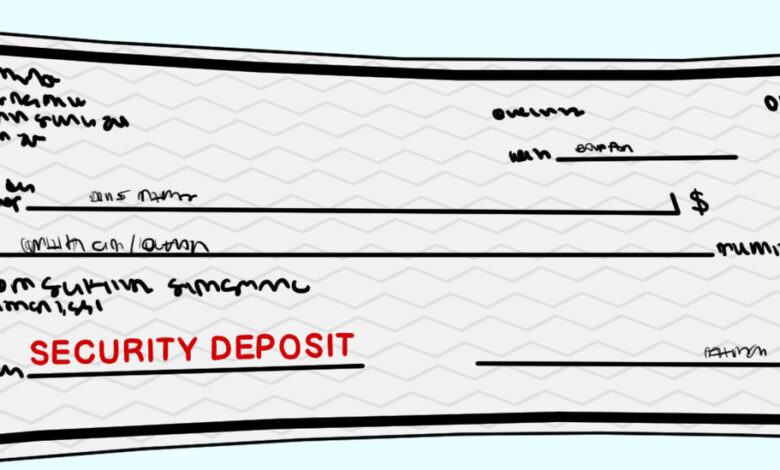I’m Worried My Landlord Will Keep My Security Deposit. What Can I Do?

[ad_1]
Q: I am moving out of New York City, and I’m concerned that my landlord will not return my one-month’s rent security deposit, even if I leave the apartment in good, clean condition. (The landlord has a reputation for not returning deposits.) I cannot afford to lose that kind of money, and I’m worried that since I’ll no longer be in New York, I won’t be in a position to make a legal challenge to get the money back if it’s withheld. To avoid the risk, I want to use the deposit as my last month’s rent, even though that is not permitted in the lease. Is this a bad idea?
A: Withholding your last month’s rent is not without risks. Best case scenario, your landlord keeps your security deposit to cover the unpaid rent, which the law allows, and you are done with the apartment.
However, the landlord could decide to sue you for unpaid rent to make a point. You might have to travel back to New York to defend yourself, or face a default judgment against you, according to Carol Anne Herlihy, a Manhattan lawyer who represents tenants and landlords. If you lose the case, which is likely, you could be on the hook for your landlord’s legal fees, depending on the terms of your lease.
“You are leaving town hoping that this will just go away, that they will just pocket the deposit, call it even,” Ms. Herlihy said. “But if they don’t, you’re coming back to New York as a defendant.”
Paying your last month’s rent may feel risky, too, but you do have some rights. In 2019, New York State enacted stronger tenant protections for security deposits. The law gives tenants tools to push back against landlords who withhold the deposits, and lays out ground rules that landlords must follow.
Use those tools to protect yourself before you move out. Give the landlord notice that you are leaving, and demand, in writing, a walk-through of the apartment at least two weeks before you move out. Your landlord must provide you with an itemized list of any damages that could be deducted from your deposit, and give you the opportunity to correct the problems. “Put the landlord on the spot where it’s harder for the landlord to pretend the apartment was a wreck,” Ms. Herlihy said.
After you move out, your landlord has 14 days to return your deposit or give a detailed explanation for withholding it. If they fail, they could be ordered to pay you damages equal to the amount of the deposit, in addition to the deposit itself, Ms. Herlihy said. Even if you’ve left the city, you could file a complaint with the New York Attorney General’s office, which could help you recoup the money. However, you would still have to sue the landlord in small claims court to collect any damages.
For weekly email updates on residential real estate news, sign up here.
[ad_2]
Source link






